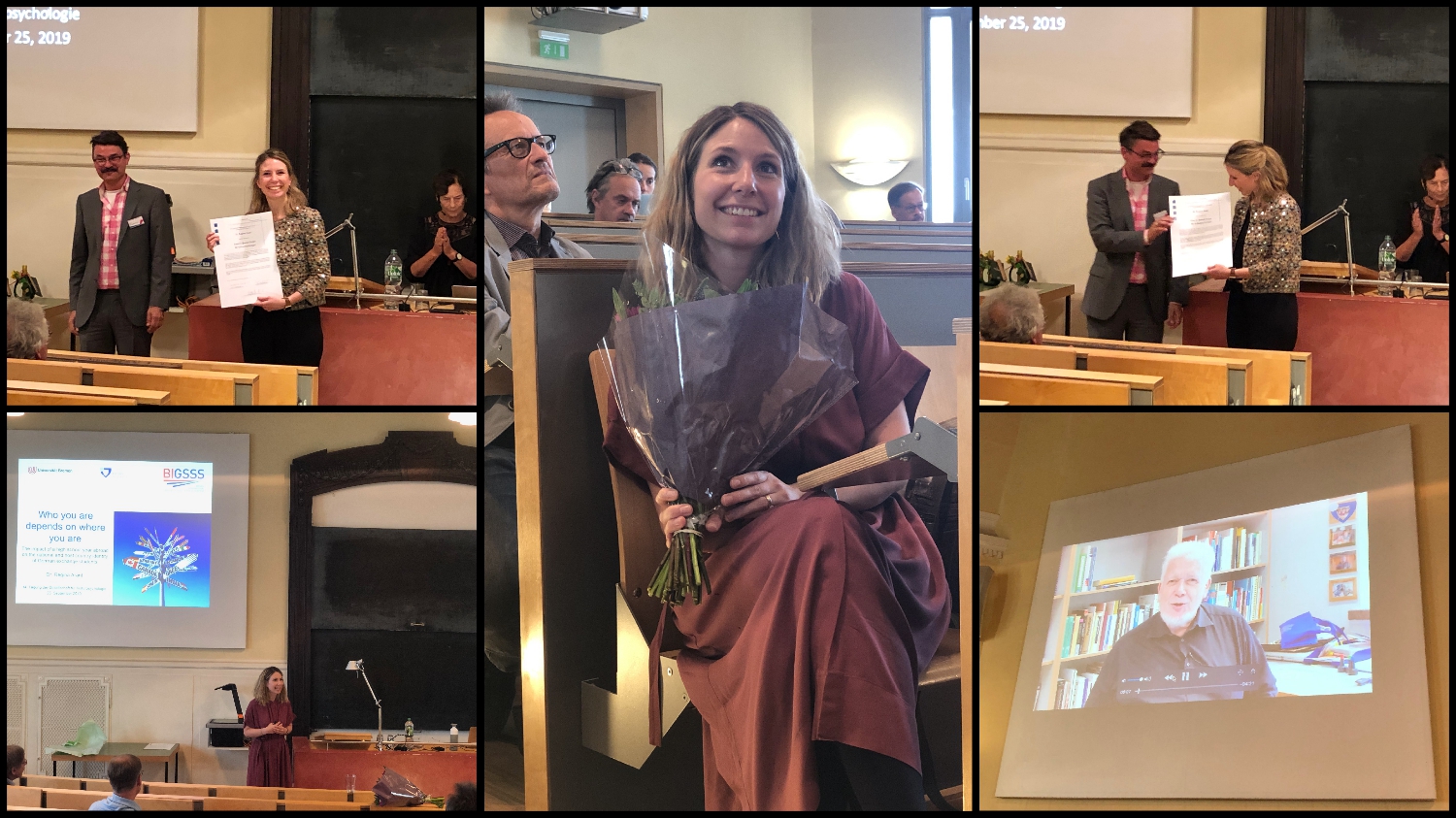Regina Arant Wins 2019 Ernst E. Boesch Prize for Her Dissertation in Cultural Psychology › view all
30.09.2019
BIGSSS alumna Regina Arant received the 2019 Ernst E. Boesch Prize for her dissertation on "Who you are depends on where you are – The impact of a high school year abroad on the national and host country identity of German exchange students".
Every two years, the Ernst E. Boesch Prize for young scientists of the Gesellschaft für Kulturpsychologie e.V. honors outstanding scholarly work in the academic field of cultural psychology and includes a prize money of EUR 1,000.
The prize was presented by PD Dr. Lars Allolio-Näcke at the 14. Conference of the Gesellschaft für Kulturpsychologie in Würzburg on September 23, 2019. In the name of the jury, Prof. Dr. Straub emphasized in his speech the sophisticated methodological contributions and undogmatic interdisciplinary approach of Regina's research in particular.
Congratulations, Regina!
Dissertation Abstract:
Acculturation research convincingly demonstrates that moving to a foreign country may not only cause adaptive changes in an individual’s home country identity but may as well initiate the identification with the receiving society. Nevertheless, the knowledge on how identity formation is influenced by the migration process itself and the extent to which it may differ for temporary migrants, such as sojourners, is still fragmented.
To extend existing research, this dissertation employs a longitudinal mixed methods approach. Quantitative longitudinal survey data were collected (N=869), targeting German high school exchange students at three points in time: (a) still in Germany, (b) shortly before the conclusion of their high school year abroad (34 different countries), and (c) three months after their return. A comparative control group of friends not going abroad (N=193) was surveyed at time points (a) and (c).
Additionally, the results of 24 semi-structured interviews conducted approximately one year after the exchange present insights into the meaning of the development and the maintenance of those identities over a total period of 2.5 years. The longitudinal design allows for the direct investigation of the developmental aspects of identity construction as well as the causal direction of effects. The results contribute to the understanding of home and host country identity negotiations as well as their interplay and the role European identity takes by investigating the impact of three triggering events and their qualitative meaning: the anticipation of the exchange, the actual transition to the students’ exchange destination, and the return to Germany.
The dissertation shows that, in contrast to adolescents who stay at home, national identity becomes a salient issue for exchange students and remains relevant after returning home. In contrast, host country identity rises and falls in conjunction with the sojourn, with specific developmental patterns for different destination region

